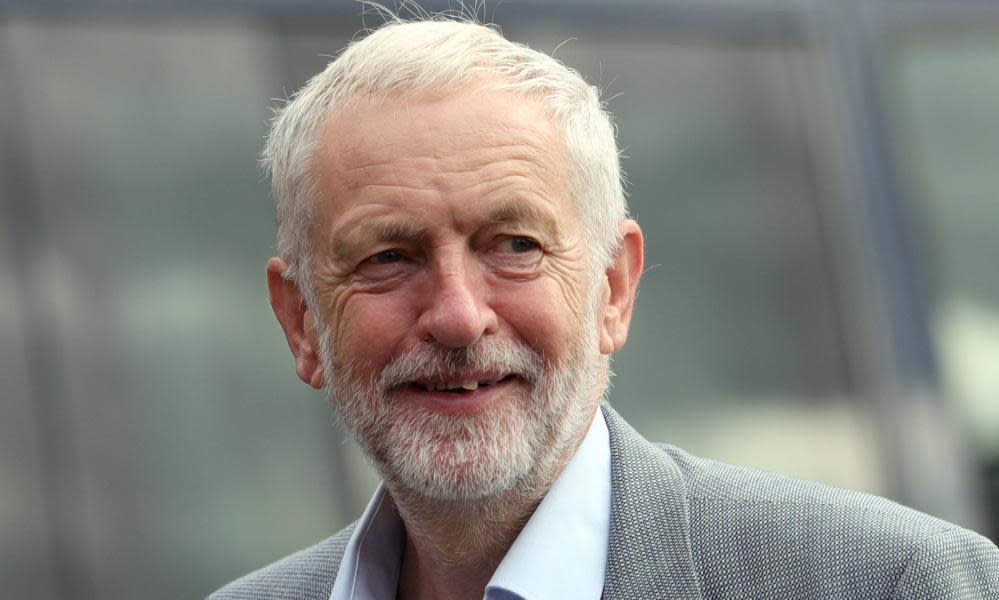Labour prepares the ground for compromise on antisemitism code

Labour is preparing the ground to amend its antisemitism code of conduct to align with International Holocaust Remembrance Alliance guidelines, provided the party can find a way to include protections that allow for legitimate criticism of Israel’s creation.
The shift comes after weeks of discord between Labour’s national executive committee (NEC) and the Jewish community after the party failed to adopt all 11 examples of antisemitism given by the IHRA, arguing that under one of them legitimate criticism of Israel could be deemed antisemitic.
The Guardian understands the party is open to adopting the full IHRA definition, with all its examples, after it has finished conducting a consultation with the Jewish community.
Labour hopes to settle the issue before its party conference at the end of September, ideally at the next NEC meeting on 4 September.
However, adopting the most controversial example – “claiming that the existence of a state of Israel is a racist endeavour” – would be contingent on finding a way to navigate free speech issues, such as by adding extra protections to the code of conduct.
Concerns had been raised that the phrasing of the example had been used to hinder criticism of the state of Israel’s creation, which the party wants to protect.
The code of conduct was adopted in July omitting four examples from the IHRA definition, provoking outcry from Jewish groups. The party proposed a further consultation to take place over the summer.
The party will adopt the other three IHRA examples of antisemitism in full, including comparing the actions of Israel to Nazis and accusing Jews of dual loyalty, having conceded that its argument that the examples were already covered by the wider code of conduct had not been accepted by the Jewish community.
In an interview this week, Jeremy Corbyn struck a conciliatory tone and said Labour had agreed to the IHRA definition and almost all of its 11 examples.
“The one example that we are discussing and consulting on is one that makes sure that you can discuss and debate the relations between Israel and Palestine, the future of the peace process and, yes, make criticisms of the actions of the Israeli government in the bombing of Gaza and other places,” Corbyn said.
“But you can never make those criticisms with antisemitic language or antisemitic intentions. And that is what we are absolutely clear on.”
Senior party figures are said to be agitating for the issue to be resolved before conference, and ideally before a vote between Labour MPs on 5 September on adopting the IHRA code in MPs’ code of conduct.
“We want it resolved,” one party source said. “Jeremy has said he is open to change, he is not pre-judging the consultation and that he has only raised one half of one example where there was difficulty.”
Multiple Labour sources said they believed the party could reach a compromise. “I assume there will be some way that Jeremy can segue out of his hard position and adopt the code,” one NEC member said.
A Corbyn-supporting Labour MP said the leader would “just have to take one for the team … he could do it along with a big speech saying ‘on my watch, no one who legitimately criticises Israel will be punished’.”
The unions GMB, Unison and USDAW, all of which have seats on Labour’s NEC, have publicly pushed for a change of direction.
Last week the Scottish Labour leader, Richard Leonard, a Corbyn backer who also sits on the NEC, said the party should adopt all of the IHRA examples.
As part of the consultation, Labour has written to dozens of rabbis who signed a protest letter to the Guardian objecting to the current code of conduct.
In a letter sent this week, Labour’s general secretary, Jennie Formby, wrote: “The NEC recognised the concerns that have been expressed by Jewish organisations and communities and agreed to open consultation on how the code may be further developed to ensure that it both meets our need for legally robust processes, as a political party with over half a million members, and also reflects the concerns of Jewish communities.”
However, a number of those rabbis, who come from across the religious spectrum, have declined to take part in the consultation.
Laura Janner-Klausner, a senior rabbi with Reform Judaism, said: “I would want to participate in a consultation if there had been any acknowledgment of mistakes made in the process.
“At the moment there is no trust left in the process at all. The party currently has a leader who is completely unwilling to admit mistakes, who is unelectable and who is an embarrassment.”
The party said it would consult the main communal bodies as well as experts and academics, but groups such as the pro-Corbyn Jewish Voice for Labour have not been asked to give their views.
Senior communal sources told the Guardian that mainstream organisation including the Jewish Leadership Council, the Board of Deputies and the Community Security Trust (CST), an antisemitism monitoring charity, were yet to receive invitations to take part in the consultation.
The CST’s Mark Gardner said community institutions had already made their views clear. “We have been here before. It is what they said when we wasted so much time and energy on the Chakrabarti report [in 2015],” Gardner said.
“This is what they said at the original meeting with Corbyn, after which we heard nothing. It is what Jennie Formby offered to be taken to the 17 July NEC meeting, which then waved through the code on the basis of its having been adopted by an NEC subcommittee before we were even invited to give feedback on the code.
“This leaves us to ask: what is there to consult about? If Labour’s leadership wishes to change its culture, then that is up to them. It does not require further charades about consultation. Instead, it can only come from within.”

 Yahoo News
Yahoo News 
